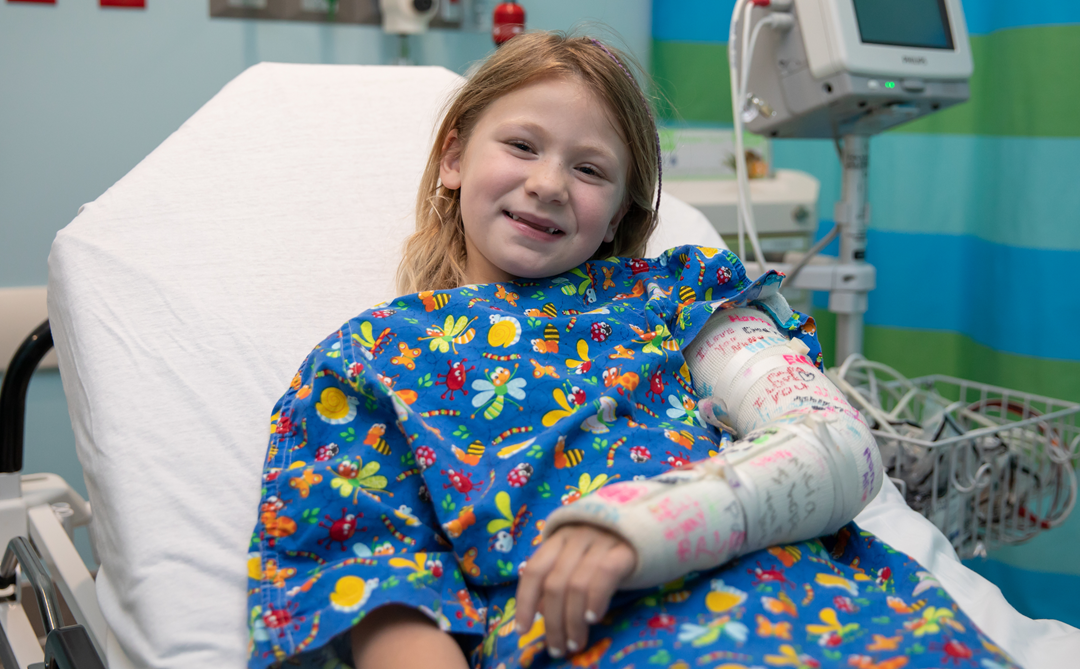Following surgery, the body experiences increased energy demands due to inflammation and tissue healing. Some patients may eat less due to reduced activity, an increased need for sleep and the use of medications. Not eating enough, when nutrition needs are highest, can prolong recovery time and cause muscle loss.
For young athletes planning to return to sports, the demands can go beyond the early phase of surgery recovery. After knee surgeries to reconstruct ligaments, such as the anterior cruciate ligament (ACL) or after extensive activity restrictions for healing of osteochondritis dissecans (OCD), these nutrition tips should be used throughout physical therapy and return to sports training. These phases can last months and have high energy demands.
Certified sports dietitian Taylor Morrison, M.S., R.D.N., CSSD, L.D., says, “Athletes have unique needs when there are healthy, but these needs change and continue to be unique as they are recovering from significant surgeries.” Morrison cares for young athletes in Scottish Rite’s sports medicine clinic and teaches principles of healing and muscle recovery that can help an athlete well beyond their care.
Morrison offers these nutrition guidelines to help preserve and promote muscle health and support recovery in all phases:
Eat regular meals and snacks to maintain energy levels and promote wound healing immediately after surgery. Eat a meal or a snack every three to four hours and around physical therapy sessions.
Include quality protein to help with tissue repair and wound healing. Include foods rich in leucine, an amino acid that helps build and repair muscle, such as chicken, milk, yogurt, eggs and cheese, at each meal and some snacks and especially after physical therapy sessions.
Include quality carbohydrates to provide energy. Carbs keeps protein available for healing and fiber, which can help with normal digestive function. Carbohydrates with fiber include whole grains, fruits and starchy vegetables. Other carbohydrates include milk and yogurt.
Include healthy fats that are high in omega 3s to fight long-term inflammation. Healthy fats with Omega 3s include salmon and tuna. Other healthy fats include avocado, nuts, seeds, peanut butter, almond butter and vegetable oil.
Include a bedtime snack that contains casein to support muscle protein synthesis throughout the night. Casein is a slow-to-digest protein found in milk, yogurt and cottage cheese.
When you head to the store to stock up on recovery-friendly foods to have on hand, take this list with you for ideas.
- Eggs
- Greek yogurt
- Protein bars
- Peanut Butter, Almond Butter, SunButter®
- Starkist® Tuna packs + crackers
- String Cheese
- Balanced nutritional supplements such as Boost®, Pediasure®, Carnation Breakfast Essentials®, Kate Farms® or Orgain®
Nutrition after surgery is important for all patients to preserve muscle and provide the increased energy and nutrients the body needs to heal. Some patients will need a specific nutrition plan due to additional medical conditions. If you would like help with an after-surgery nutrition plan, ask your care team about a certified sports dietitian consult.
To learn more from Morrison, visit the sports nutrition page on our website.

